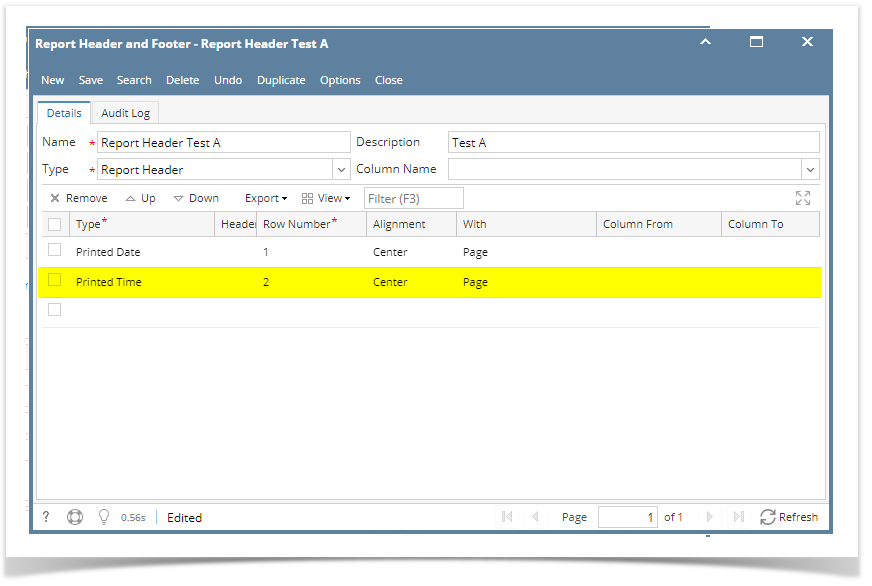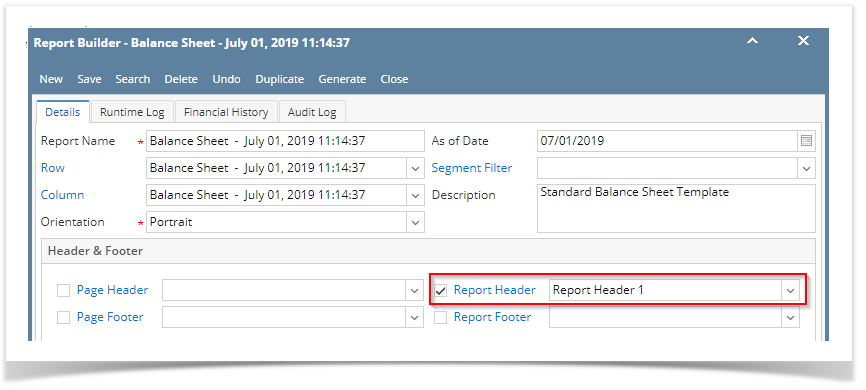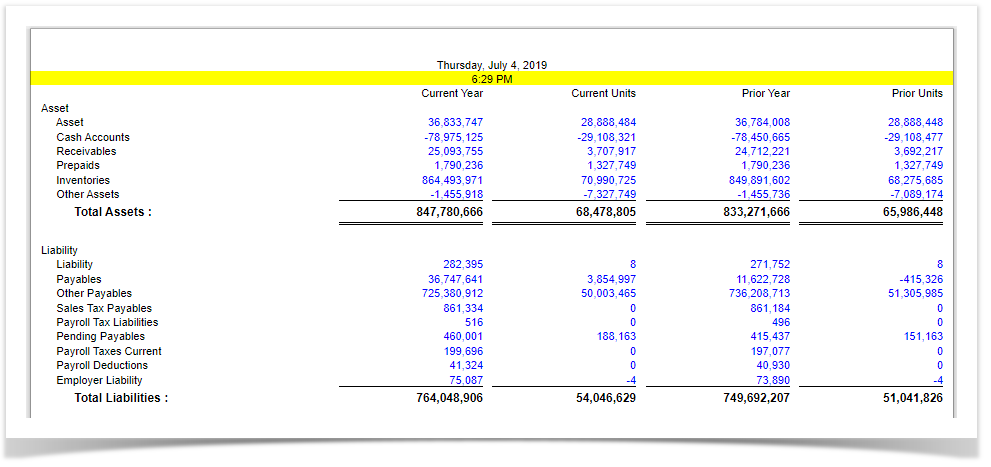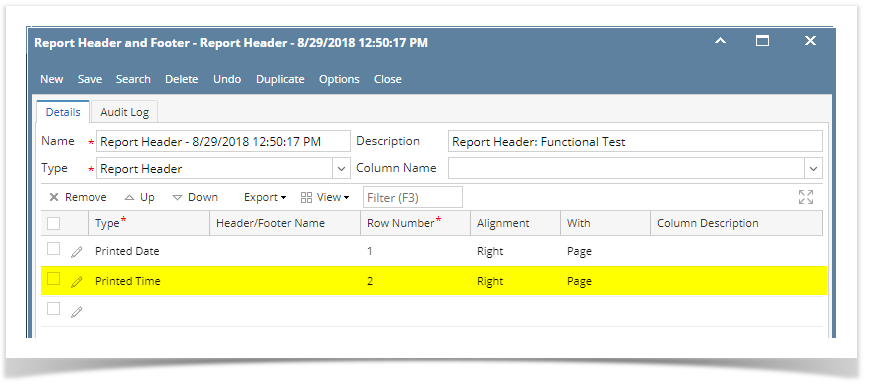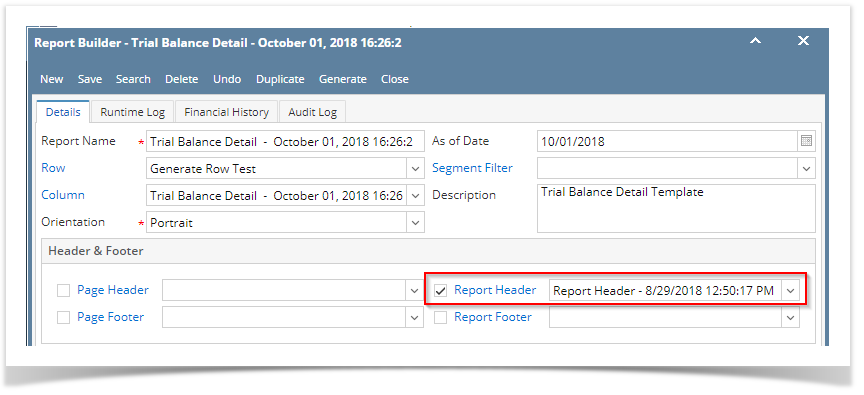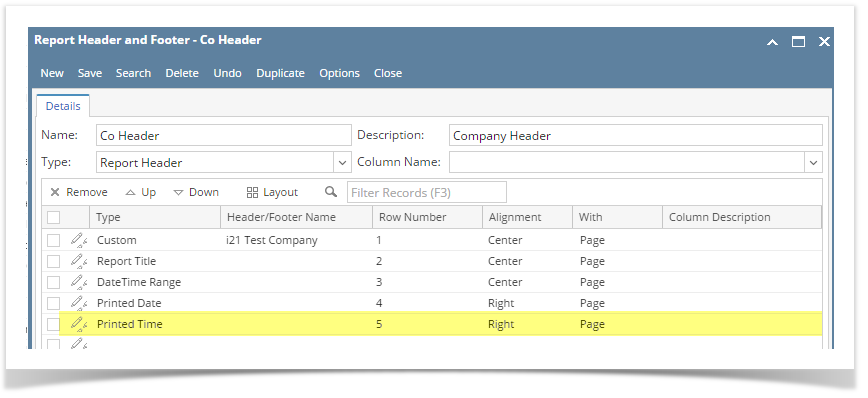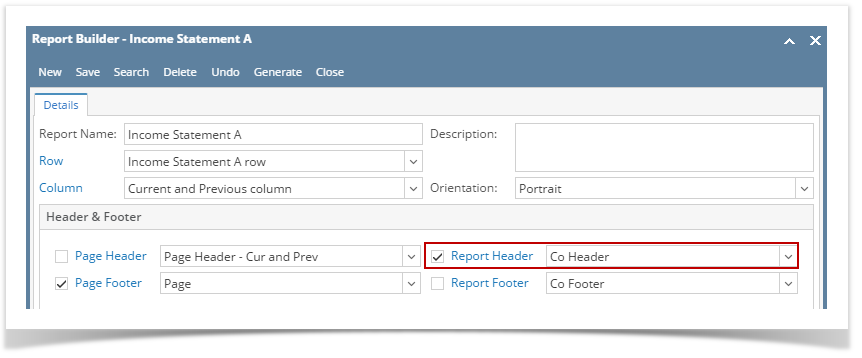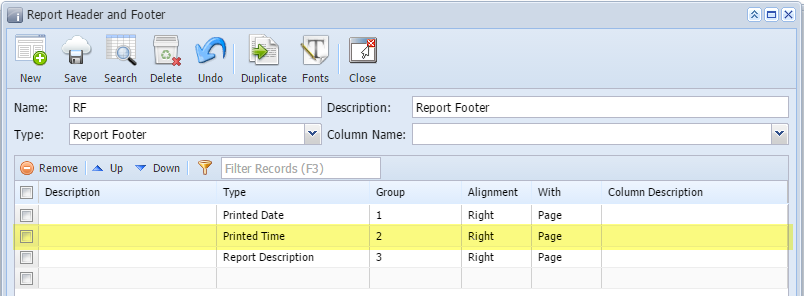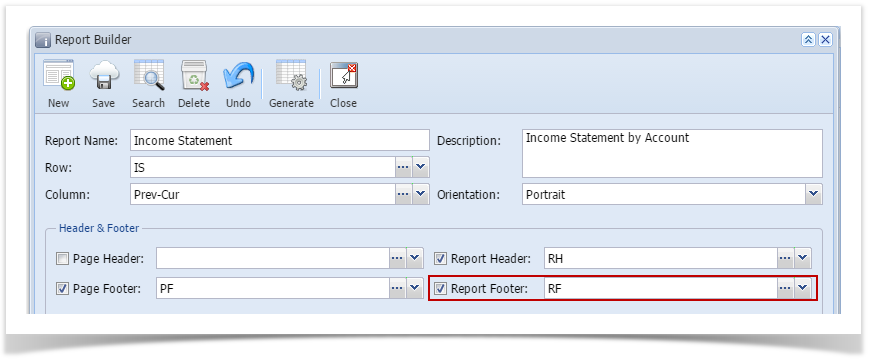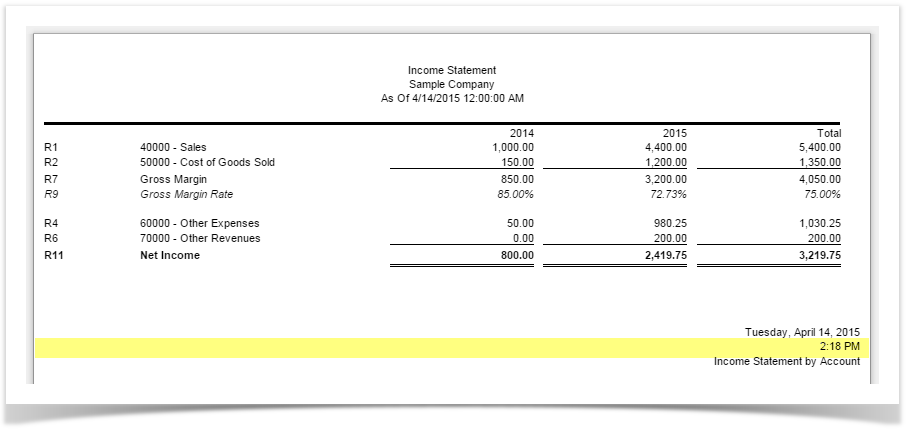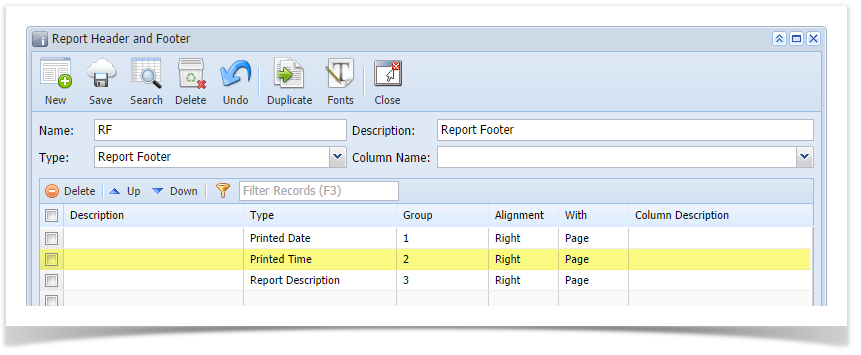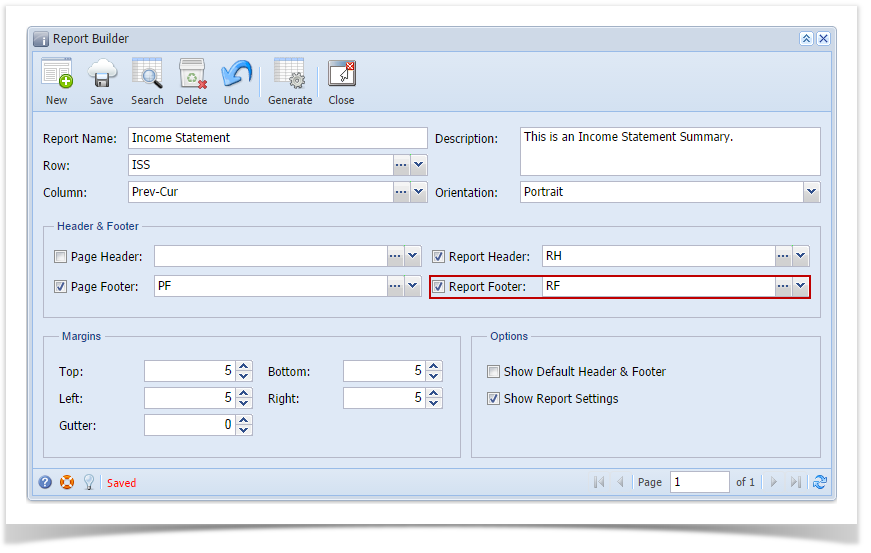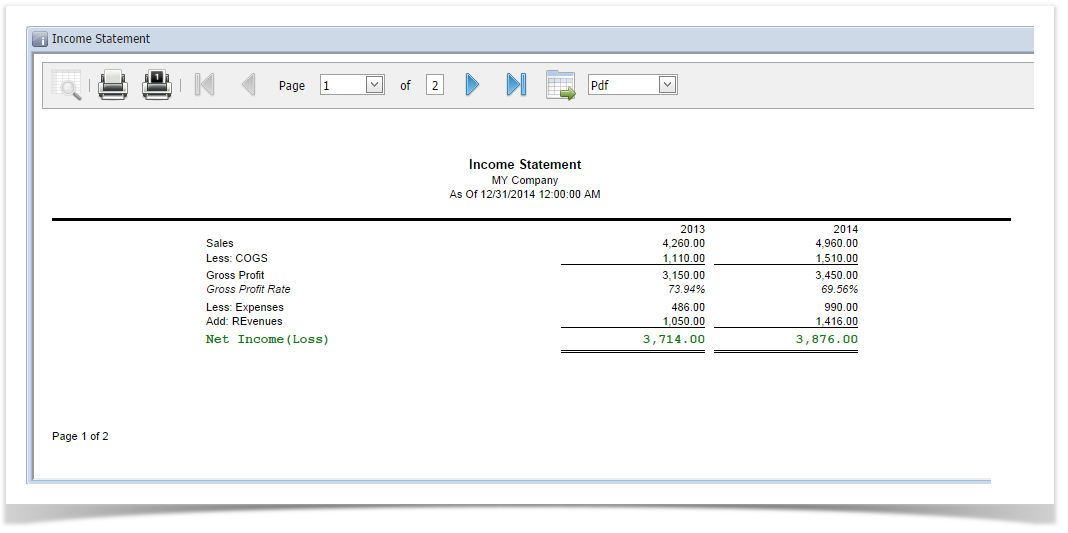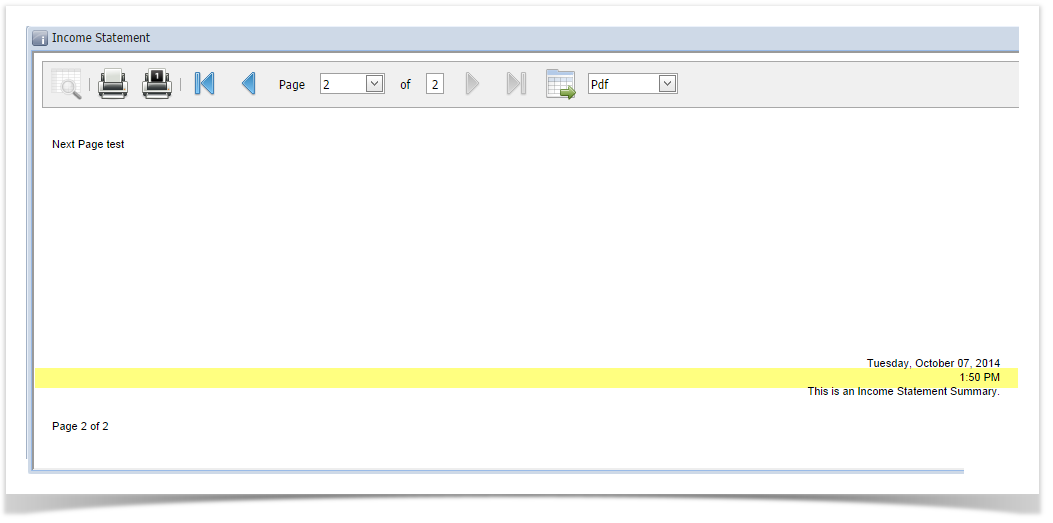The Printed Time header/footer is used to add a date when the financial report was printed.
Follow the steps below to guide you on how to add printed Date report footer.
- A new row will be available in the grid section.
- In the Type field, select Printed Time.
- Leave the Header/Footer field blank.
- The Row Number field dictates the order of the header/footer. Set this field to 1 if this will be the first row to show in the header/footer, 2 if second row, so on and so forth. Set this to 1 for this illustration.
- In the Alignment field, set how the value for the column be displayed. Set this to Right.
- In the With field, select Page. This will occupy the entire page.
- Leave Column Description field blank.
This is how Printed Time header/footer setup will look like.
Select this Report Footer in the Report Builder and make sure that the checkbox before it is checked when printing/previewing the report.
Here's how it is shown when report is previewed/printed. Highlighted section is the Printed Time type header/footer. Since this is a report header, this will show on the first page of the report only.
You can enhance this header/footer by setting its Font Properties and Row Height. See How to Configure header and footer font properties and row height topic to guide you on how to do this.
